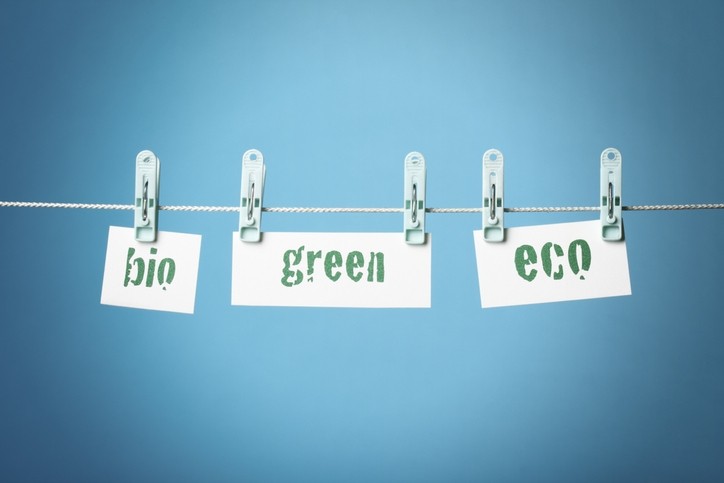Guest Post: Food businesses are walking blindly into greenwashing claims

Until now such claims have been regulated under general marketing laws related claims that are misleading by action or omission. The big elephant in the room is a lack of a harmonized approach on how such claims are substantiated and importantly communicated to consumers. That time is over with the implementation of the Greenwashing and Green Claims Directives close to being in force.
TWO directives one simple message – Act now!
The GWD is an update to the Unfair Commercial Practices Directive (UCPD) and the Consumer Rights Directive (CRD). The result is a ban of generic environmental claims such as “environmentally friendly” unless such claims are within sector specific rules or regulation (e.g., Energy labelling regulation, Ecolabel Regulation) or a recognized Member state ecolabelling schemes. We should consider the GWD a “Catch-all” piece of legislation that paints a broad picture regarding misleading green claims.
To add to this burden on business we will see the Green Claims Directive (GCD) coming into force and this is a much more specific piece of legislation covering explicit environment claims in text or logo format as well as comparative claims. It may also cover implicit claims such as imagery of forests etc. but even if not, these will fall under the GWD. In addition, the GCD provides specific rules on what and how claims are to be communicated to the consumer as well as on substantiation.
Finally, there will need to have all explicit claims verified by a third-party that is accredited via a Member State. This could mean certification such as B-Corp, Rain forest alliance, Climate Neutral Certified and many similar certification schemes will need to be assessed before their logo (sustainability label in EU speak) are permitted on pack.
There is some respite for business in the short term as the GCD will not come into 2025, and thus on several issues industry has a chance to consider what is coming and how to adapt to the new rules. Unlike the GCD, the GWD will enter into force on the 20th day following its publication in early 2024.
Impact on industry?
In relation to how big this change will be, it can be considered from the point of view of the research the European Commission carried out in 2020. It found over 50% of all environmental claims were vague, misleading, or unfounded. This is such a significant amount of the market.
At present, the draft proposes a minimum penalty of 4% of total annual turnover in those Member States where the claim is used. Other action may include confiscation of revenues from products bearing the claim, and exclusion from public procurement, funding, and grants for 12 months.
Together the suggested level of non-compliance in the market with the potential enforcement action should give all businesses making environmental claims pause for thought.
BREXIT dogs free trade
The UK will not be a signatory to the changes brought forwards by the GCD nor the GWD. The UK currently implements the UCPD by the Consumer Protection from Unfair trading Regulations (CPUTRs) but the new changes in EU legislation will not appear in the CPUTRs.
Instead, the UK will control misleading green claims by the CPUTRs but only in as far as the guidance issued by the Competition & Markets Authority (CMA). The guidance from the CMA (Green Claims Code) sets the bar for when green claims are misleading as well as giving some options for enforcement of advertising via the ASA as an ‘established means’ to bring about compliance.
A big concern with the upcoming regulations from the EU is divergence from UK legislation as will be the level of fines for non-enforcement. Under the draft Digital Markets, Competition and Consumer Bill (Bill) then businesses making illegal ‘Green claims’ in the UK could see a fine of up to 10% of global turnover. This makes clear already FBO selling across the EU will need to consider best practice and the upcoming laws to ensure cross market compliance.
What to do next?
On a positive note, microenterprises (<€2mn turnover & <10employees) will be exempt from the GCD provided they do not request a certificate of conformity for its green claims. However, there are no such exemptions from the GWD. For those FBO where the GCD does apply the consequences can be significant in terms of possible enforcement outlined above.
There remain many questions about the new directives including:
- What are accreditation requirements for 3rd part verifiers?
- How will implicit claims be regulated?
- Will the UK implement and or accept EU verified claims?
- What will be the cost to business for 3rd party verification?
- How will UK based environmental claims and certificates of conformity be viewed at EU level (Equivalence agreements)?
- How long will FBOs with self-certified claims and related logos have to comply?
- When will guidance on GCD and DWD appear?
- Will there be any conflict between third-party verification schemes under the GWD and the GCD?
Our guidance at this time can be summarized simply; act now, gather guidance from Member states and the UK and match this with the data you hold for your green claims.
This is your starting point e.g., to know where your claims, sustainability labels and marketing is at risk of non-compliance and to consider a best practice plan. Where uncertain after this exercise seek expert advice sooner or later, especially if such claims are integral to your business model and brand.











